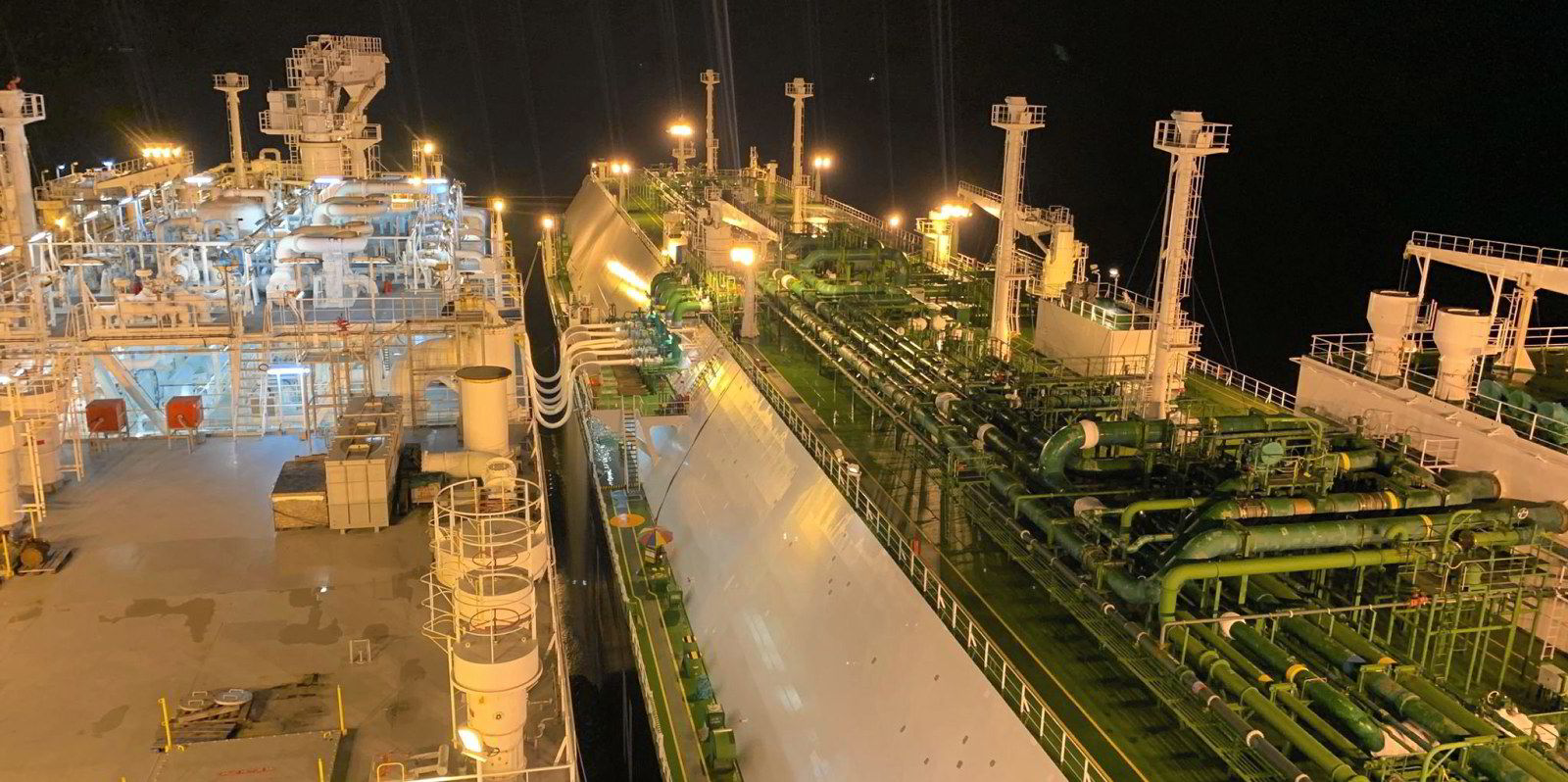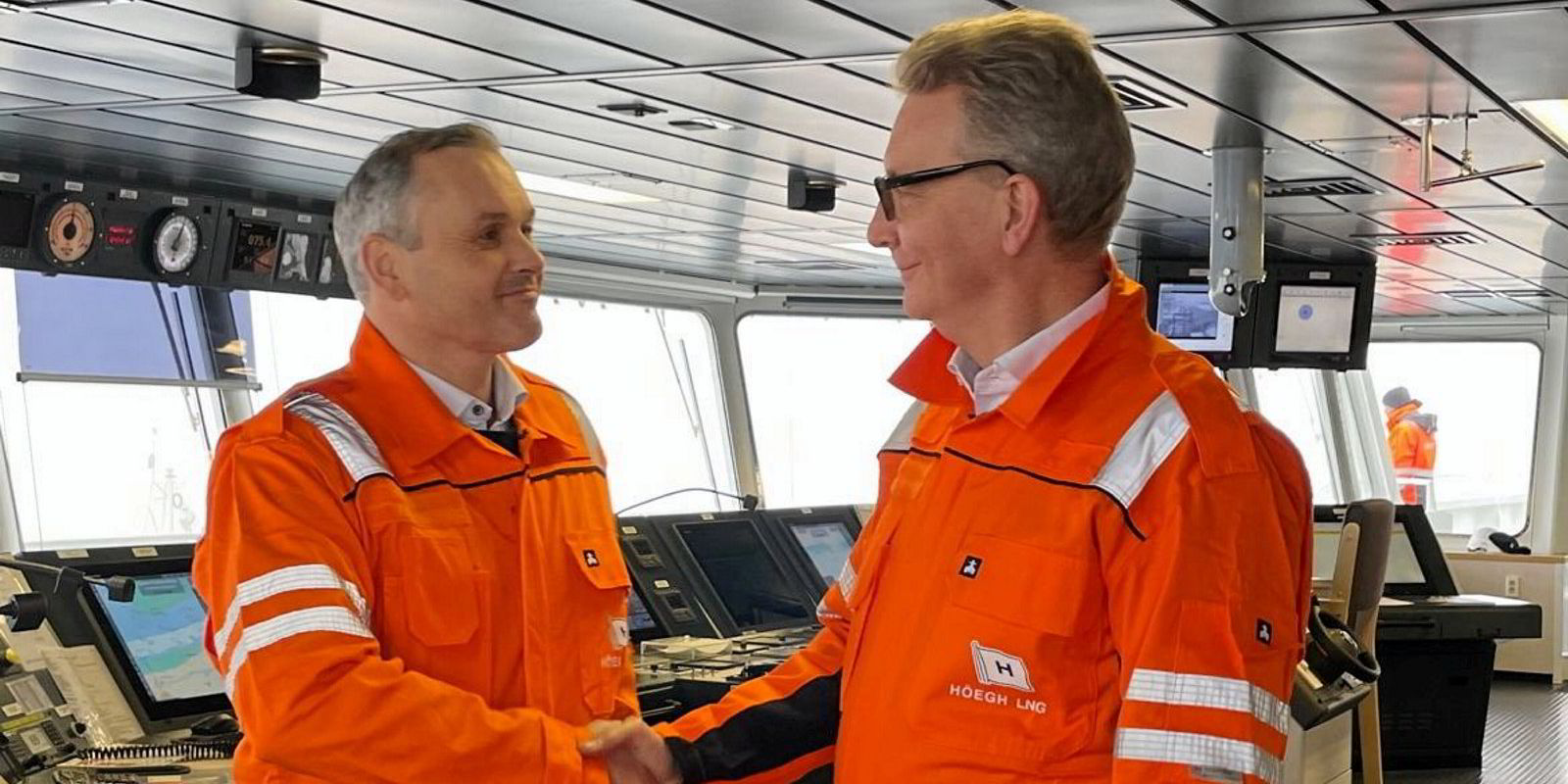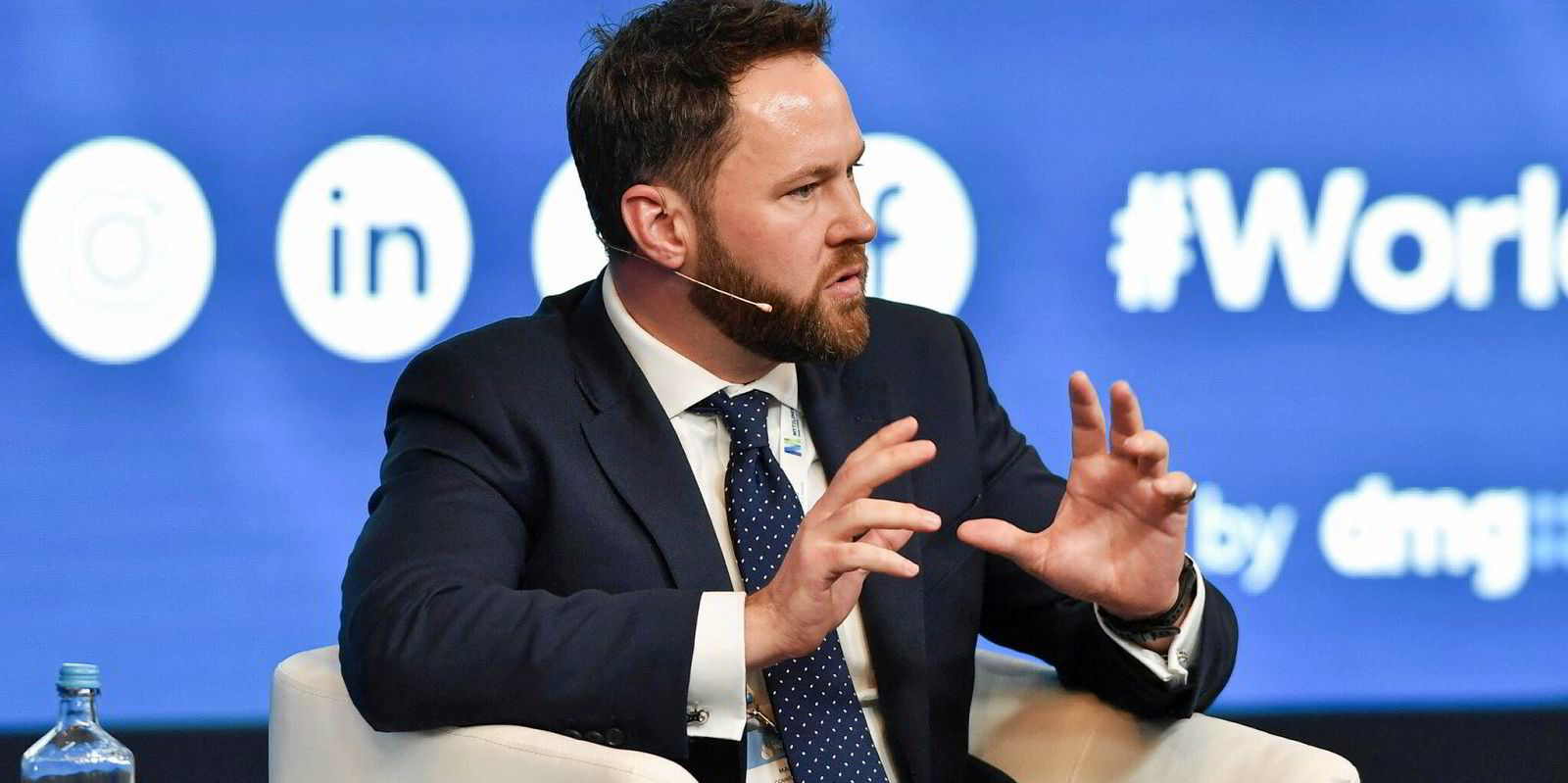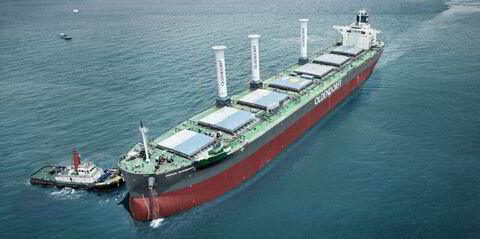German energy company Uniper said imports from its first floating storage and regasification unit will have covered around 6% of Germany’s gas consumption during the vessel’s initial year of operations.
Uniper said the 170,000-cbm Hoegh Esperanza (built 2018), which was commissioned almost one year ago on 21 December in Wilhelmshaven, has received 42 LNG carriers to date over the 12-month period, which delivered around 7m cbm of LNG to the FSRU.
The energy company and FSRU operator said this LNG has been converted into around 4bn cbm of natural gas and fed into the German gas grid.
“Around six per cent of German gas consumption in 2023 could thus be covered by the LNG imported at this location,” the company said. “It is already certain that the capacities of the ‘Esperanza’ will also be fully utilised for 2024.”
Uniper highlighted that the German government awarded it the contract to install and operate the FSRU in March 2022 — which was in the immediate wake of Russia’s invasion of Ukraine the previous month.
Construction of the facility at Hooksiel in the outer harbour near Wilhelmshaven was completed in nine months.
Uniper subsidiary LNG Terminal Wilhelmshaven is responsible for the operational and technical management of the terminal.
The energy company acts on behalf of the federally owned Deutsche Energy Terminal (DET), which is responsible for the operation and marketing of all LNG terminals built on the German North Sea coast on behalf of the government.
Uniper chief operating officer Holger Kreetz said: “This year proved how much Germany needed the terminal and will continue to need it in the future. However, Uniper is also working at full steam on future green import opportunities in the form of ammonia.
“The region around Wilhelmshaven will be an energy hub far into the future,” Kreetz added.
DET managing director Peter Rottgen said the terminal has “laid the foundation for securing the energy supply for Germany and Europe”.
“But this pioneering work was just the beginning,” Rottgen continued. “With three more LNG terminals in the German North Sea, we are also contributing to the stability of the energy system.”
Uniper said the realisation of the LNG terminal was an “important project” for the company, even though the energy carrier LNG serves Uniper only as a transitional solution on the way to a new, CO2-neutral energy world.
The company plans to invest over €8bn ($8.7bn) between 2023 and 2030 including projects for a large-scale electrolysis plant at the former power plant site in Wilhelmshaven, an ammonia import terminal near the current LNG terminal along with solar and wind-backed power plants.





